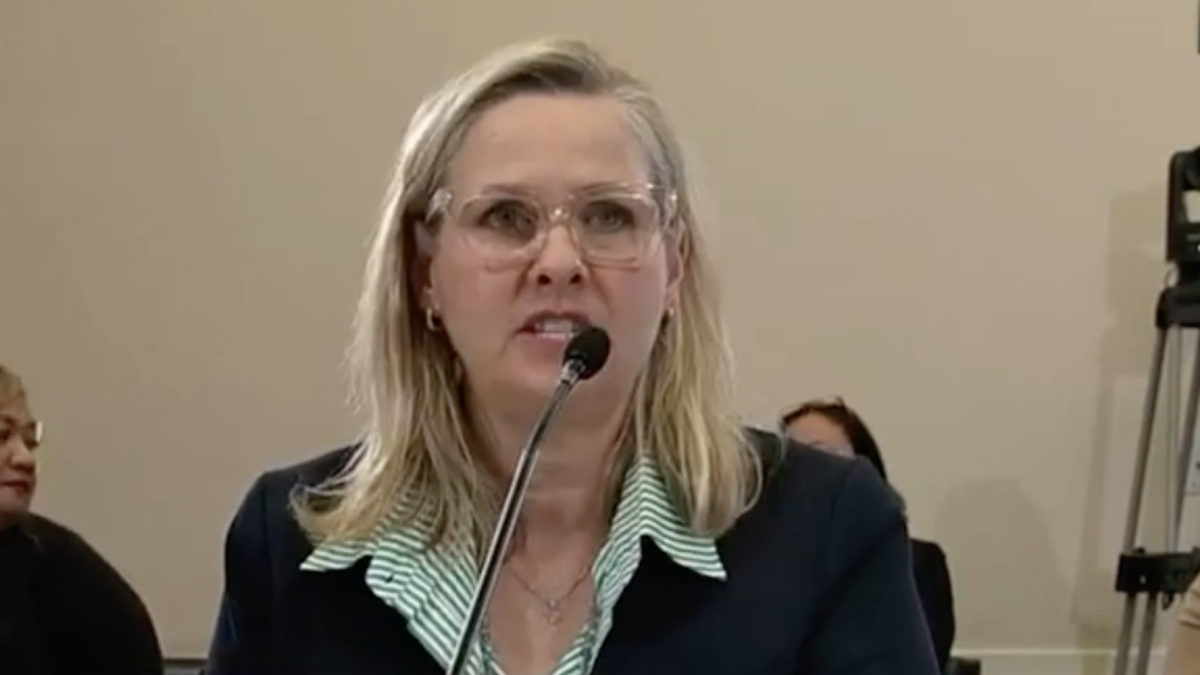
If we are a nation of laws and not of men, and if we believe in equal justice for all and special privileges for none, then our government has a funny way of showing it. As the Washington Examiner reports, the five year statute of limitations on perjury and/or false statement charges that could have been brought against former Obama administration Director of National Intelligence (DNI) James Clapper have now expired.
Clapper’s offending statements made in March 2013 concerned his denial of any National Security Agency (NSA) bulk data collection program, which was soon after exposed by Edward Snowden.
While giving congressional testimony under oath, Clapper responded untruthfully to a question from Democratic Sen. Ron Wyden about whether the NSA “collect[ed] any type of data at all on millions, or hundreds of millions of Americans.
“No, sir,” he asserted. “Not wittingly.”
Clapper would later admit in a written statement that his response was “clearly erroneous,” and that he “simply didn’t think of Section 215 of the Patriot Act,” the provision covering the NSA’s bulk metadata collection. During an MSNBC interview however, he suggested that his statement during congressional testimony was the “least untruthful” he could make in the face of a “When are you going to … stop beating your wife kind of question.”
A bipartisan cadre of officials would press for charges to be brought by the Justice Department under two administrations, to no avail.
Predictably, in spite of the media’s supposed devotion to truth in defense of our democracy (to this author’s dismay, never our republic), and its historic sensitivity to the concealment of civil-liberty infringing acts of the state, nary a peep has been raised regarding the Justice Department’s unwillingness here to mete justice.
Why did the Justice Department sit on its hands?
Liberal constitutional law professor Jonathan Turley, writing in a January 2018 editorial anticipating this outcome, suggests that in Washington, D.C. “perjury is not simply tolerated, it is rewarded. … In a city of made men and women, nothing says loyalty quite as much as lying under oath.” Buttressing his argument, Turley cites a 2007 study indicating that dating back to the 1940s, all of six people have been convicted of perjury or related charges for lying to Congress.
In the run-up to the Justice Department’s decision to bring no charges, Republican Sen. James Sensenbrenner, the author of the original Patriot Act, stated, “Political consideration should not affect the Department of Justice from pursuing this matter.”
That Sensenbrenner invokes the scepter of politics here raises a big red flag about the state of our system of justice.
Consider the counterexample to the longtime Obama DNI chief in President Trump’s short-time National Security Advisor.
Prior to President Trump’s inauguration, then-deputy attorney general Sally Yates suggested that Lt. Gen. Michael Flynn may have violated the Logan Act — a law against private citizens engaging foreign officials to influence and/or undercut extant policy in disputes with the U.S., under which no American has ever been successfully prosecuted — over conversations Flynn had with foreign counterparts, including Russian Ambassador Sergey Kislyak during the Trump transition period.
Mere days after Flynn assumed office, then-acting attorney general Yates directed the Federal Bureau of Investigation (FBI) to interview Flynn, purportedly pursuant to her Logan Act concern. What Flynn said during this conversation would serve in large part as the basis for his prosecution under the Robert Mueller special counsel.
Flynn made several remarks that allegedly conflict with evidence the federal government collected in surveilling the conversations of foreign officials, including the aforementioned Kislyak. According to Flynn’s guilty plea, he made false statements and/or omissions regarding:
- A conversation with Kislyak asking him to “refrain from escalating the situation in response to sanctions that the United States had imposed against Russia”
- Calls made to foreign officials regarding an anti-Israel UN Security Council Resolution on which the Obama administration abstained rather than seeking to defeat — the Mueller team alleged Flynn directed counterparts to vote against or delay the resolution, while Flynn allegedly claimed he simply asked for his counterparts’ position on it
- Documents filed with the Foreign Agents Registration Act in connection with a project undertaken by Flynn’s then-consulting company during the 2016 campaign season for the benefit of the Republic of Turkey
Taken as a whole, some of Flynn’s words and actions may have been ill-conceived or reflected poor judgment, though calling foreign counterparts during a transition period is certainly reasonable and customary. But charges were not brought against any of the actions themselves. Rather, Flynn pled guilty solely to process crimes.
Former federal prosecutor Andrew McCarthy makes a compelling case that the use of the Logan Act as the basis for the investigation into Flynn that teased out such crimes in and of itself was unjustifiable, not only because of the “highly dubious” nature of the law itself, but because of the guidelines FBI Director James Comey had set with respect to non-pursuit of charges relating to Hillary Clinton’s email server.
Beyond whether Flynn should have been investigated in the first place, several months after Flynn submitted his guilty plea, the Washington Examiner’s Byron York reported that then-FBI Director Comey in a March 2017 meeting with lawmakers claimed that the FBI agents who interviewed Flynn did not believe Flynn had lied to them or that inaccuracies in his answers were intentional.
The judge presiding over Flynn’s case was recused shortly after the guilty plea was submitted, replaced by a new judge who has asked the Mueller special counsel to produce for Flynn’s team the evidence “favorable to” Flynn and “material” to Flynn’s “guilt or punishment.” Sentencing has been postponed until May.
Whether this means Flynn may ultimately have reason to vacate his guilty plea or not, the process alone has served as a punishment, not only in at least indirectly costing Flynn his job, but also in tarnishing his career and financially crippling him.
In sum, under the pretext of a law under which no American has ever been prosecuted and as part of a special counsel based on a counterintelligence investigation under which contrary to rules and regulations no crime was specified, a national security advisor pled guilty to process crimes largely based on a conversation with FBI officers which the bureau at the time actually deemed truthful or at worst unintentionally inaccurate — all under a process that has destroyed Flynn’s life.
Clapper has faced no repercussions for lying under oath.
Is the Justice Department adhering to a double standard?
Both men served at the highest levels of the intelligence community (IC) in the Obama administration, with Flynn leading the Defense Intelligence Agency (DIA) and Clapper heading the DNI. Flynn challenged the administration in which he served, and the prevailing views within its national security and foreign policy apparatus, specifically over ISIS.
The DIA issued a classified report in 2012 foretelling the rise of a Sunni jihadist-led Islamic State across parts of Iraq and Syria. While the Obama administration was arguing that al-Qaeda was “decimated,” and “on the run,” Flynn’s DIA was predicting the growth of a new jihadist state led in part by Al-Qaeda in Iraq.
Flynn told The New York Times in 2015: “This particular report, this was one of those nobody wanted to see … It was disregarded by the White House … It was disregarded by other elements in the intelligence community as a one-off report. Frankly, at the White House, it didn’t meet the narrative.”
In February 2014, a month after President Obama called ISIS the “JV team,” Flynn told the Senate Armed Services Committee that ISIS would likely “attempt to take territory in Iraq and Syria to exhibit its strength in 2014, as demonstrated recently in Ramadi and Fallujah, and the group’s ability to concurrently maintain safe havens in Syria.” Here again, Flynn’s assessment proved accurate, but in conflict with what the administration he served was communicating, to its political detriment.
Obama fired Flynn soon after, citing his “chaotic” approach to management, his “aggressive push for changes” within the DIA, and “temperament issues.”
During the 2016 election, Flynn jumped on the Trump train. Those in the national security and foreign policy establishment must have been aghast. Hundreds of such prominent individuals who had served administrations across the political aisle signed letters opposing then-candidate Trump. One can imagine their horror in seeing Flynn on the stage yelling “Lock her up” with respect to former Secretary of State Hillary Clinton, and serving as the right hand man for the candidate seemingly repudiating everything for which they stood.
As former President George W. Bush speechwriter Mark Thiessen observed following Flynn’s appointment, ex-Obama administration officials lamented the selection of Flynn as National Security Advisor above all other appointments. None of this can be said of Clapper, who remained steadfastly loyal to the institutions he served, and has frequently challenged Trump.
It was Clapper’s DNI that oversaw the intelligence assessment made in conjunction with the NSA, FBI and Central Intelligence Agency asserting that Russia had sought to help Trump in the 2016 election, to the president’s great consternation.
Clapper has stated that President Trump’s rhetoric on Russia “poses a peril to this country,” and that Vladimir Putin is “handling” President Trump like an “asset.” He has suggested that the firing of FBI Director Comey was tantamount to obstruction, and suggested in front of a foreign audience that Watergate pales in comparison to Russiagate.
Clapper has also expressed fears over the president’s access to nuclear codes and questioned his fitness for office.
He espouses these critical views as a paid contributor for Trump’s chief media adversary in CNN, an outlet to which we now find out Clapper may have leaked information on his classified briefings with then-President-elect Trump and President Obama on the Steele dossier in early 2017.
Flynn flouted the political establishment in the most flagrant of ways. Clapper has remained a member in good standing.
Could this in part explain the disparate treatment of these two IC fixtures by a Justice Department still in large part comprised of individuals averse to the anti-establishment president under whom they serve?
To the degree to which politics influences legal decisions made regarding high-ranking government officials — as Sensenbrenner implies — it perverts a justice system that no man is supposed to be above. Our political system and its institutions lose their legitimacy when officials are judged according to different standards. The law must be applied fairly and equally if it is to have any meaning at all. Moreover, to the extent to which the law is a deterrent, if not applied fairly and equally, it may incentivize future misbehavior among individuals who believe they will be protected by being “team players.”
Of all of the things that cause a loss of confidence in and respect for our political system, perhaps the most pernicious is the idea that the game is rigged. The only way to change this perception is for our justice system to demonstrate it is grappling with it through consistent principled action.









